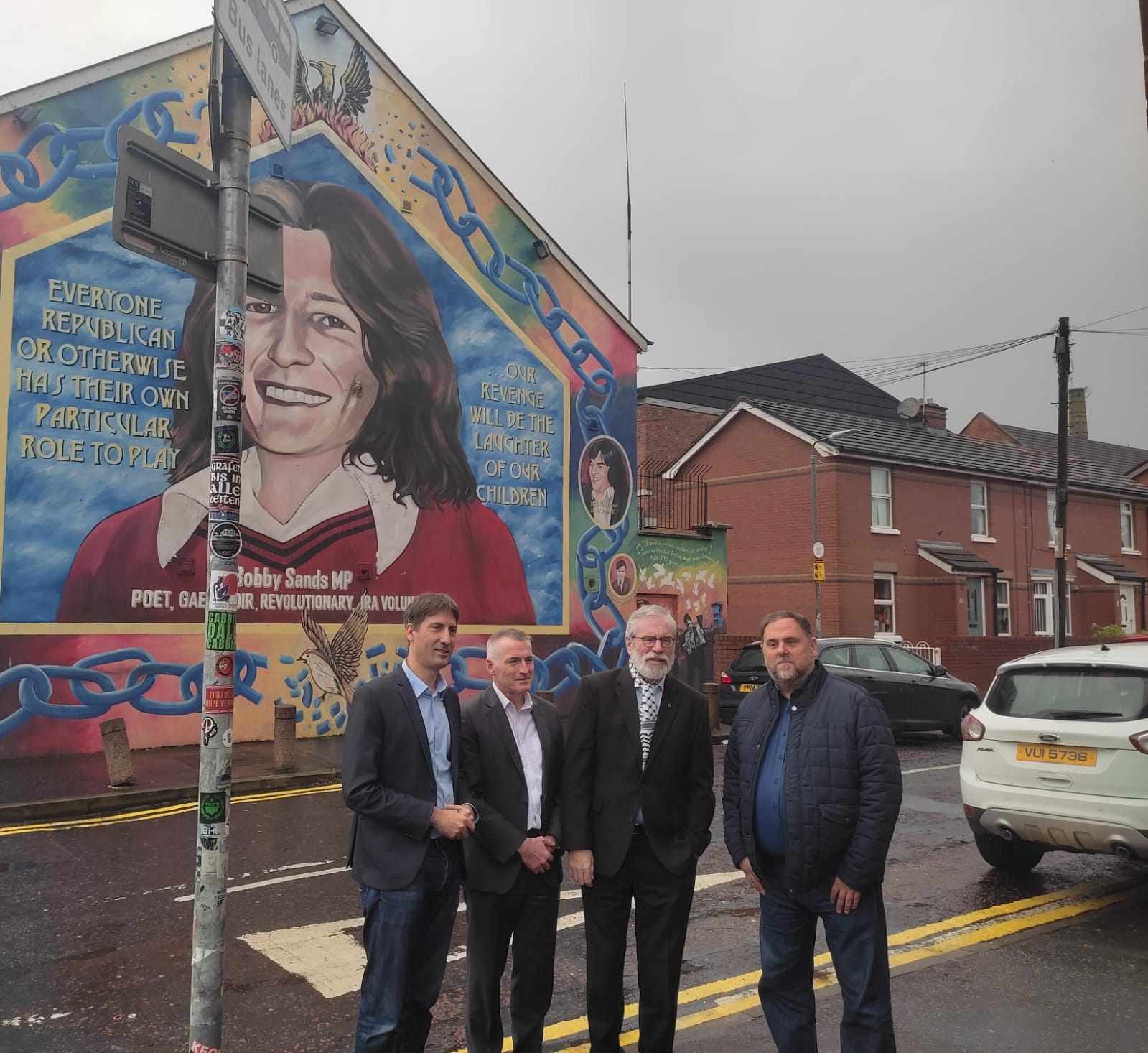The Catalan Republican Left (ERC) president Oriol Junqueras has this Thursday met Gerry Adams, the best-known face of the conflict in Northern Ireland and also of the peace process that gave rise to The Good Friday Agreement, and the two held a conversation at the headquarters of Sinn Féin in Belfast. ERC has always identified the Irish republican party as one of its international partners and, on a trip that is taking the pro-independence leader to several cities on the island, they wanted to strengthen the ties they already share. In this context, the meeting with Adams was the icing on the cake, although it is not the first conversation between Junqueras and the former Sinn Féin leader: they met, via electronic media, while the ERC leader was in jail for sedition over Catalonia's 1-O independence referendum of 2017.

The two held a meeting, accompanied by Sinn Féin spokesperson Declan Kearny and Catalan Republican Left MEP Jordi Solé, for almost an hour in which, as Junqueras himself later explained, they discussed the referendum in Catalonia and the future of the two countries, with both of them convinced that this must involve Catalonia's right to decide its future and the "importance of it being the people who decide with their votes." While, in Northern Ireland, Sinn Féin is talking about a referendum for Irish reunification in the next decade, Junqueras has refused to set a deadline for a new consultation on the issue in Catalonia, since, he clarified, "it is never a question of time, but rather, of democratic strength".
The Good Friday Agreement, an "extraordinary" example
Adams, who was leader of Sinn Féin from the early 1980s until 2018, is considered a key figure in the resolution of the conflict and the Good Friday Agreement. That peace accord, consisting of two main documents signed in April 1998 in Belfast, put an end to decades of armed conflict, and for Junqueras, despite the differences between the situation in Northern Ireland and Catalonia, it is an "extraordinary example" to take into account for the resolution of the political conflict between Catalonia and the Spanish state, since, he stressed, the Irish accord includes the holding of a referendum. Although that is not the only such case: he also cited the situation between Canada and Quebec and the conditions laid down by the European Union in Montenegro to be able to recognize that territory's referendum. "Catalonia, the same as Quebec, Northern Ireland or Montenegro. We are convinced that the same thing can happen as [elsewhere] in Europe and around the world," reflected the ERC leader.
Junqueras warns about investiture negotiations: "An agreement is impossible if nothing is done"
Junqueras and Adams were photographed together in front of one of the most popular murals in Belfast, located next to the Sinn Féin headquarters and which features Bobby Sands, provisional IRA member who died at just 27 years of age after a hunger strike in prison. However, Adams, with a Palestinian scarf around his neck and retired from the leadership of the party after 35 years in charge, did not make any statements and his spokesman Declan Kearny spoke on behalf of the party, stating that he is convinced that in the coming years both Northern Ireland and Catalonia will vote on their political status.
This trip by Junqueras to Ireland takes place amidst the continuing negotiations for the investiture of Pedro Sánchez as leader of a new Spanish government, a process which continues without a date set for the all-important debate and vote. Asked about the status of these conversations, Junqueras limited himself to recalling what the conditions are for the seven ERC deputies in Congress to say yes: an amnesty, a negotiation table to make progress towards the resolution of the conflict and a area of social and economic aspects, such as plans to end Spain's massive fiscal deficit in Catalonia or the transfer of the Rodalies rail system to Catalan hands. Without giving more details, the ERC leader made it clear that if the Spanish government wants the investiture, it will have to get to work in these three areas. "What is impossible is for there to be an agreement if the government does nothing to reach one," he concluded.

